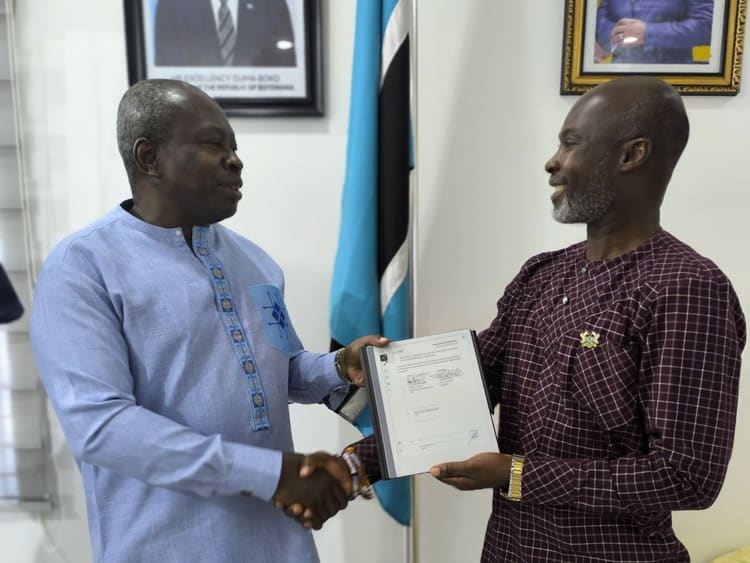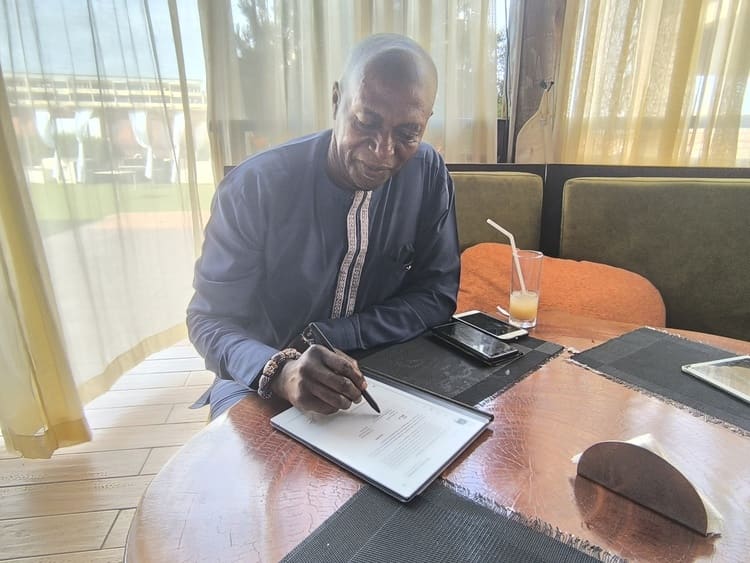A Queen Warrior, Legend, Hero, Leader, Queen Mother, Grandmother and an inspiration for generations
She was a Queen Warrior, Legend, Hero, Leader, Queen Mother, Grandmother, Inspiration for generations, not only in Ghana. Among a list of wonderful things, Yaa Asantewaa is no doubt one of the most courageous and heroic warriors in history.
She was born in 1840 in Besease, Ashanti Empire and was the eldest of 2 children. Her parents - Ataa Po and Ampomah of Ampabame - were farmers. Yaa Asantewaa grew up like any other children in the village - cultivating crops in Bonankra area and working hard. She lived a normal farm life and was in polygamous marriage with a Kumasi. They had a daughter Nana Ama Serwaah of Boankra. Her brother, Nana Akwasi Afrane Okpese, later became the Ejisuhene or the ruler of Ejisu district in the Ashanti Empire.
In 1874 Asantehene (King) Nana Prempeh I signed a treaty of friendship with British colonizers. It called for multiple battles and wars in the future between Asantes and the British.
Throughout her life Yaa Asantewaa had witnessed several life changing events. During her brother's reign the Civil War (1883-1888) posed a serious threat to the Ashanti Empire. Yaa Asantewaa was appointed the Queen Mother of Ejisu by her brother. She was highly intellectual, good politician, strategist, human right activist - a leader. She also actively talked about women emancipation as well as gender equality.
After her brother's death in 1894, she nominated her grandson as the next Ejisuhene. Meanwhile, British came up with an offer to Prempeh I which would make Ashanti Empire the protectorate of the British Government. Understandably, in fear of losing authority, the King of Asante refused the offer. In 1896, the King of Asante, Prempeh I and other members of the Asante government, including Yaa Asantewaa’s grandson, were exiled by the British to the Seychelles which led her to becoming the regent of the Ejisu–Juaben district.
Among the most important royal possessions of the Asante Kingdom was the Golden Stool (Sika Dwa Kofi). It is a sacred, religious and national symbol - the divine throne of the Asante people. It represents the statehood and power of the Asante Nation. The Golden Stool is still believed to hold the soul of the Asante Empire and Nation. It is not even put on the ground, not even talking about sitting on it.
British realized that this item is of somewhat high importance to Asantes and demanded to surrender it to them. They highly undervalued the level of importance of the Golden Stool. Asantes, foreseeing the events and in attempts to keep their sacred item safe, had already made the 2nd Golden Stool - a replica. Asantes categorically refused to give up the real Golden Stool. They chose to allow their King to be exiled rather than losing their sacred symbol. Seeing this, British Colonial Administrator, Sir Frederick Mitchell Hodgson, called an important meeting with the Asante leaders. He demanded the Golden Stool to be surrendered to him by the order of H.M Queen Victoria to sit on it! This was a serious political error Hodgson's behalf. No one sits on the Golden Stool!
Asante Government held a secret meeting in Kumasi to find a solution to this unimaginable matter. Yaa Asantewaa also took part in the meeting. She proposed that they demand British to return their King and if they fail to do so, Asantes would declare war. The Chiefs were fearful and very reluctant to start a war with the British.
Yaa Asantewaa was enraged, she could not believe the cowardice. She reminded them of the bravery of Asante - as that was what they were always known for. She gave an iconic speech on that meeting:
"How can a proud and brave people like the Asante sit back and look while whitemen took away their king and chiefs and humiliated them with a demand for the Golden Stool. The Golden Stool only means money to the whitemen; they have searched and dug everywhere for it. I shall not pay one predwan to the governor. If you, the chiefs of Asante, are going to behave like cowards and not fight, you should exchange your loincloths for my undergarments (Montu mo danta mma me na monnye me tam).
Now I have seen that some of you fear to go forward to fight for our King. If it were in the brave days of Osei Tutu…leaders would not sit down to see their King taken away without firing a shot. No white man could have dared to speak to a leader of the Asante in the way the Governor spoke to you. Is it true that the bravery of the Asante is no more? It cannot be! I must say this, if you the men of Asante will not go forward, then we will. We the women will. I shall call upon my fellow women. We will fight the white men. We will fight till the last of us falls in the battlefields!"
Her impressive, courageous and motivating words led to the Ashanti Uprising. Yaa Asantewaa was selected as the first and only woman - war leader or Commander in Chief in Asante history. She oversaw 5000 warriors. Yaa Asantewaa was also appointed as 'Gate Keeper of the Golden Stool'. All these events sparked 'The War of the Golden Stool' or also known as the Nana Asantewaa’s War.
Yaa Asantewaa bravely led an attack on the fort in Kumasi in March 1900. British troops and the Governor were held inside. The Ashanti warriors had cut telegraph wires, blocked all roads and food supplies and attacked relief columns. Unfortunately, in spite the impressive resistance the war concluded with a British victory in September 1900.
By 1901 all Chiefs of the Ashanti Empire were arrested, except Yaa Asantewaa herself. The British managed to capture her only granddaughter which made her surrender. Yaa Asantewaa and 15 of her advisers were exiled to the Seychelles for 25 years where she died in 1921.
No war comes without sacrifices and this 6-month war took 1000 British and 2000 Ashanti lives, which was much higher than the deaths from all previous six wars between the Ashantis and the British combined.
Despite her arrest and exile, in the eyes of the Asante Nation the victory still belonged to them. After all, they managed to keep their divine throne. The replica came useful, as it was handed over to the British and the real Golden Stool was hidden and kept safe. The British were looking for it for a long time, until it was accidentally found in 1920 by some road builders.
Yaa Asantewaa remains a loved, admired, remembered and celebrated figure even today. Her legacy has inspired people for generations. She is remembered not only for her courage and heroism against the British colonialism but also for her unshakable patriotism and devotion to her Nation.
Isn't that a true Queen Warrior?

Edite Strautmane, travel writer and nature enthusiast, shares her passion for travel, exploration and adventure through stories on GhanaTRVL.











Comments